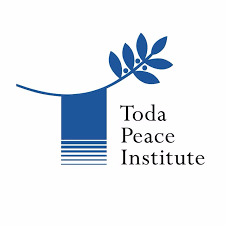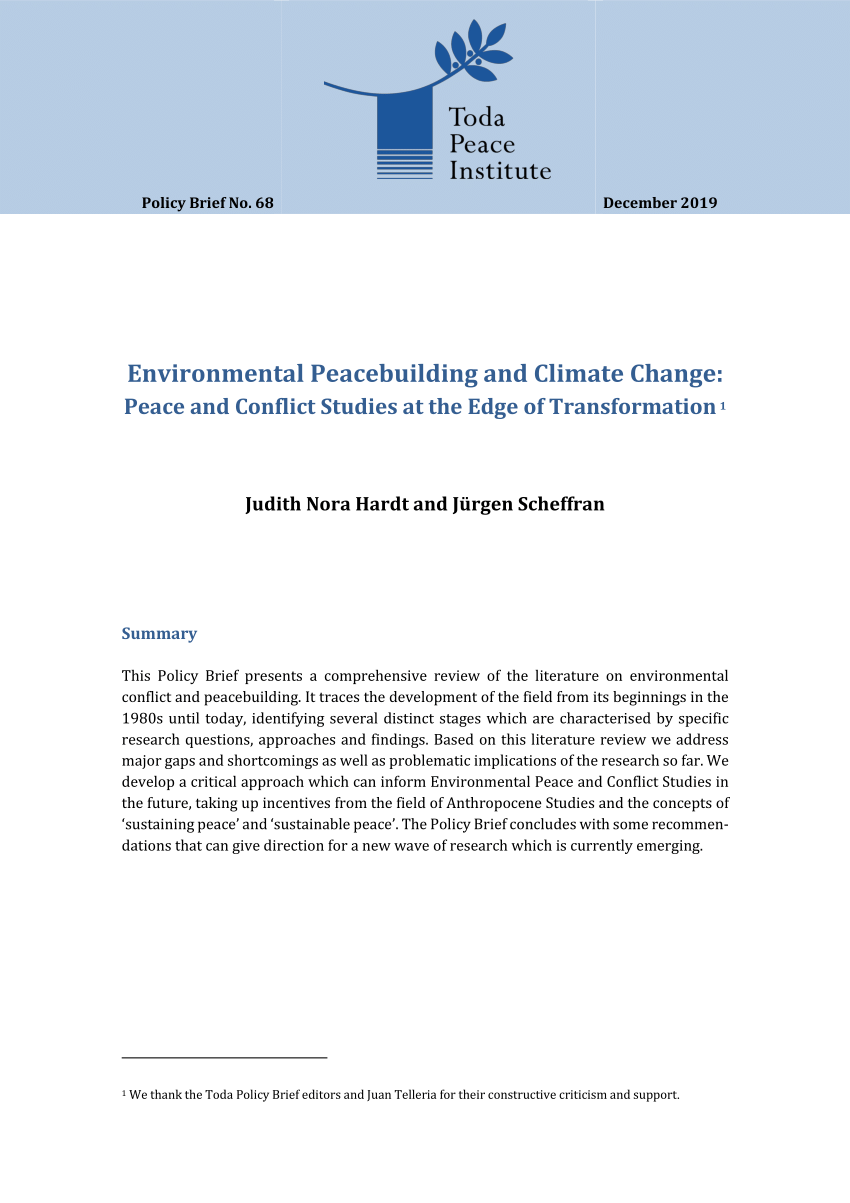Location
Vision
The Toda Peace Institute mission is to promote a nonviolent, sustainable and peaceful world, by pursuing the following four visions:
1. To nurture and develop regional and global institutions, mechanisms and programmes capable of reasserting cooperative security principles to advance national and human security and guarantee stable peace.
Global, economic, political, and security threats (such as political extremism, poverty, cyber insecurity, weapons of mass and minor destruction, environmental degradation, arms racing, health pandemics, humanitarian crises, inequality, violence, and war) are all interconnected. They cannot be dealt with satisfactorily at the level of the nation state. It is vital, therefore, to reactivate the principles of common and cooperative security as guides to developing effective regional and global responses to national, regional and global challenges. The Toda Peace Institute will initiate research on the relevance of these principles in relation to 21st century threats and organise meetings with defence and security professionals in Asia, Europe and North America to ascertain whether ideas of common and cooperative security might provide useful collective solutions to contemporary security dilemmas. We will continue to work in collaboration with key experts and relevant organisations on WMD security and their abolition, arms control and disarmament, and non-offensive defence policies. We will do so while supporting UN reform and the development of regional peace and security mechanisms to advance cooperative security. Human security outcomes will be the litmus test of progress on these issues. These goals will be accompanied by research and regional workshops aimed at strengthening pre- and post-conflict peacebuilding processes in the Asia-Pacific region as these are key preventive elements in removing some of the root causes of violence and war.
2. To understand and promote environmental security alongside sustainable and just development in order to protect peoples against the negative impacts of climate change, socio-economic fragility and conflict.
With a growing number of climate change skeptics assuming power in North America and elsewhere there is a high probability that progress on climate change will be slowed or reversed. This is likely to have extremely negative consequences on stressed and vulnerable eco-systems and will pose a major challenge to life, wellbeing and peaceful relations on a global scale. The Toda Peace Institute will lever its resources to work with expert partners on exploring the nature of the relationships between climate change, poverty, political instability, socio-political tensions and conflict. In particular we will work with individuals and communities affected by climate change in the Asia-Pacific region, so that they might respond and adapt to environmental challenge in ways that improve the conditions for peace, and reduce the risk of violent conflict. This programme will be aimed at synthesising existing primary and secondary research on these issues and then working in partnership with civil society and academic partners to share wisdom with national, regional and international decision-makers so that policies and programmes on climate change will be progressive, conflict sensitive and supportive of peaceful dynamics.
3. To build stable peace in Northeast Asia.
Over the past years the Toda Peace Institute has organised a series of interactive Track 1.5 problem solving workshops aimed at identifying impediments to stable peace between China, Japan and the two Koreas. These have been aimed at dealing with national identity issues as well as painful historic memories which have a capacity to sabotage harmonious and peaceful relationships between all three countries.
In recent years, attention has been paid to an analysis of the pros and cons of changes to the Japanese Pacifist Constitution; the negative consequences of arms racing and competitive military expenditure in the region and most recently, ways of ensuring that tensions and conflicts between North and South Koreas and the United States might be resolved through conflict prevention, preventive diplomacy and negotiated solutions to perceived threat. There has also been a focus on the development of regional security mechanisms/architecture within which bilateral and trilateral disputes might be resolved peacefully.
4. To explore and expand the theory and praxis of nonviolence to address, prevent and transform direct and indirect violence within Asia and the rest of the world.
In the face of growing atavistic nationalism, challenges to democracy and the rule of law, increased protectionism and the resurgence of national as opposed to cooperative security interests around the world, the Toda Peace Institute will promote research policies and programmes aimed at inclusion, cooperation, human security and cosmopolitan internationalism. We will initiate conversations between leaders of nonviolent social and political movements resisting human rights violations and conflict management/resolution/transformation actors and practitioners. By working with scholars and practitioners drawn from both the nonviolence and conflict transformation worlds, we will identify areas of commonality and difference, assess their different impacts and effectiveness and explore ways in which their interests might be combined to create conditions conducive to peace, justice and global order. It will focus work on the development of civil society capacities within the Asia Pacific region while keeping a watchful eye on comparable developments in other parts of the world. This programme will involve, regional as well as global research and training programmes. An important aim of this theme is the protection of the democratic project in the face of authoritarian tendencies and violent extremism all around the world.
Members:
Resources
Displaying 1 - 1 of 1Environmental Peacebuilding and Climate Change: Peace and Conflict Studies at the Edge of Transformation
This Policy Brief presents a comprehensive review of the literature on environmental conflict and peacebuilding. It traces the development of the field from its beginnings in the 1980s until today, identifying several distinct stages which are characterised by specific research questions, approaches and findings. Based on this literature review the authors address major gaps and shortcomings as well as problematic implications of the research so far.


